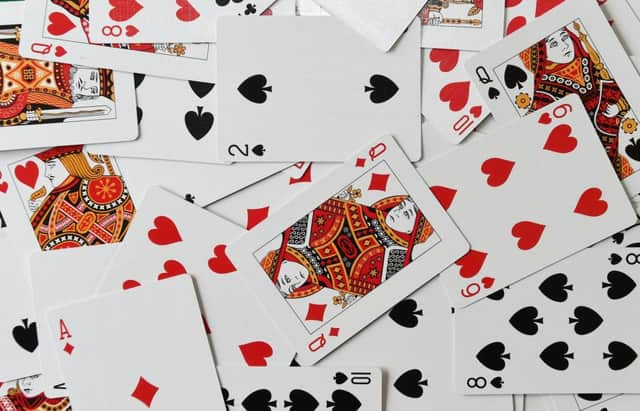Bridge ruled to be a card game not a sport


Sport England refuses to recognise bridge as a sport because it does not involve ‘’physical activity’’.
English Bridge Union officials mounted a challenge but a judge ruled against them today after a hearing in London.
Advertisement
Hide AdAdvertisement
Hide AdMr Justice Dove began a written ruling on the case with the words: “Bridge is a card game...”
And the judge said he had not been asked to answer the “broad, somewhat philosophical question” as to whether or not bridge “is a sport”.
He said the issue was whether Sport England officials had “erred in law” when refusing to classify bridge as a sport.
Sport England had adopted a policy containing a definition of sport which was derived from the European Sports Charter and included the words “physical activity”, said Mr Justice Dove.
He concluded that the move was in line with legalisation - and dismissed the English Bridge Union’s bid for a “judicial review”.
The English Bridge Union said sporting recognition stymied potential funding opportunities and lawyers representing union officials argued that Sport England - a funding body accountable to ministers - had made legal errors when reaching its conclusion.
They said the phrase “physical training and recreation” contained in legislation - 1937 Physical Training and Recreation Act - had been “misconstrued”.
Mr Justice Dove thought otherwise.
The judge said there was a “compelling case” that the phrase “physical training and recreation” should be interpreted as “meaning physical training and physical recreation”.
Advertisement
Hide AdAdvertisement
Hide AdHe said that “construction” was supported by a 1937 Memorandum which identified the Government’s aim as “promoting physical fitness” and embracing “the whole field of physical culture”.
He added: “I am equally unpersuaded by the suggestion that ‘physical training and recreation’ is a phrase whose general understanding has moved on or which exists within a factual or social context where its meaning may have developed and changed since the 1937 Act was enacted.”
He said some international organisations had recognised bridge as a sport, but he said it was “difficult to identify” anything which might justify giving a different meaning to “physical training and recreation” than the meaning intended in 1937.
“The importance of supporting physical training and physical recreation remains a significant element of public policy, and the desirability of the specific promotion of physical activities remains as relevant today as it was at the time the 1937 act was passed,” said the judge.
“That is not to say that there may not be good reason for public policy to promote mental activity and agility, but in the light of the originally intended meaning of the phrase remaining both relevant and appropriate there is no warrant for the phrase to be reinterpreted to include activities not involving a physical element.”
He went on: “There is therefore no warrant in this case to reinterpret this phrase as a result of the passage of time: inclusion of activities promoting mental activity and agility would in my view undoubtedly require amendment of the legislation.”